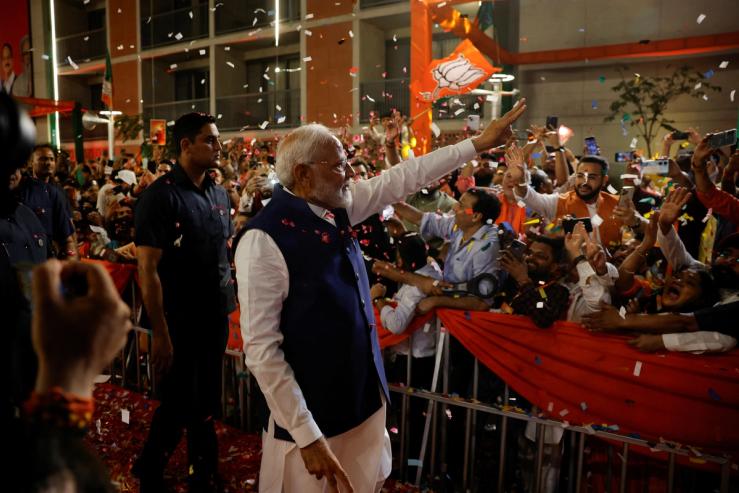The News
Indian Prime Minister Narendra Modi and his Bharatiya Janata Party have won India’s election, and on Wednesday, the BJP-led National Democratic Alliance said they “unanimously” back Modi for a third term as prime minister in a coalition government.
The agreement came after Modi’s BJP party lost an outright majority in the election and ceded several key seats in party strongholds to the opposition.
The opposition INDIA (Indian National Developmental Inclusive Alliance) bloc has so far refused to concede the election. And the smaller parties in the NDA — the Telugu Desam and Janata Dal (United) parties — reportedly demanded concessions from the BJP to join the coalition.
Modi is expected to be sworn in as prime minister on June 8.
SIGNALS
Coalition government may not be stable
For the first time since Modi took office in 2014, the BJP will govern in a coalition, which means it will rely on the cooperation of smaller parties to push through policies it could once pass on its own. Modi “is likely to be able to continue as prime minister,” the Economist noted, but keeping that power may rely on striking deals with other party leaders. The heads of TDP and JDU “will now emerge as kingmakers and attempt to extract favours from the BJP on appointments, benefits for their states and policy.” Still, it is a precarious position for Modi: Both parties have also been courted by the opposition INDIA bloc to join it in a coalition instead, and the JDU’s leader has switched allegiance in the past.
BJP’s authoritarian turn may have united a broad alliance against it
The BJP’s power over parliament has waned with this election. Modi’s third term is a historic feat for an Indian prime minister, Devesh Kapur, a professor of South Asian studies at Johns Hopkins University, wrote in Foreign Policy. But it could be the BJP’s attempt to hold on to power that ultimately led to its downfall: “The more hegemonic that the BJP became, the more authoritarian that it became, putting pressure on opposition parties and their leaders,” Kapur wrote. “But instead of weakening them, it brought them together. Nothing concentrates the mind like a fight for survival.”



